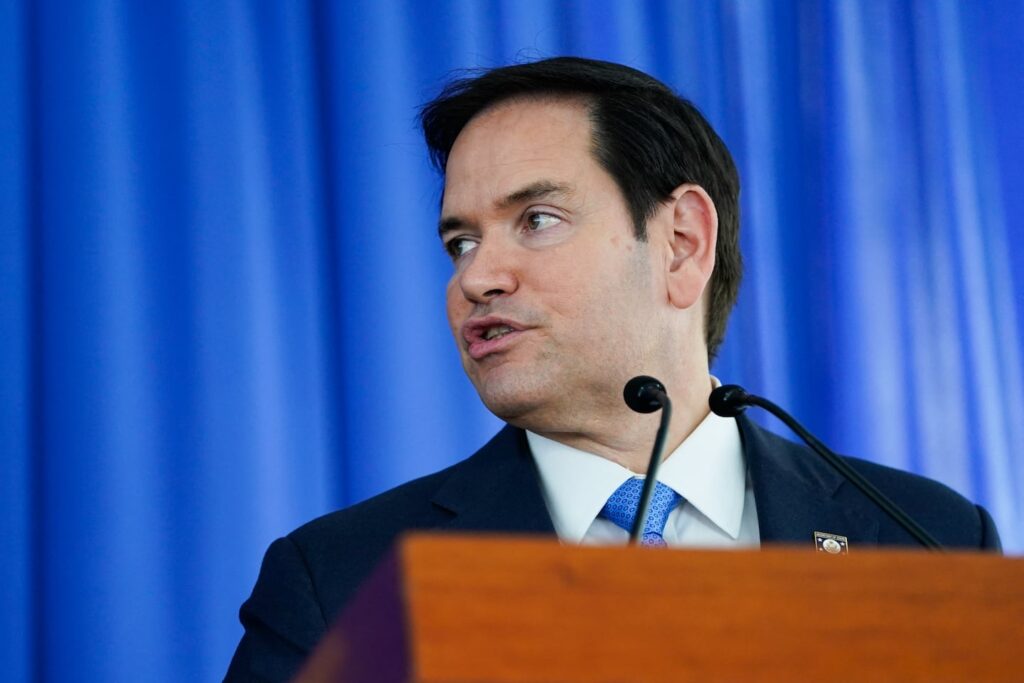Secretary of State Marco Rubio defended the detention of a Tufts University graduate student earlier this week, saying that she had destabilized her college campus as part of the pro-Palestinian movement last year.
Speaking to reporters in Guyana on Thursday, Rubio said that Rumeysa Ozturk, a Tufts doctoral candidate studying child development, was part of the student protest movement that caused chaos on university campuses last year. He also defended similar measures that are being pursued against other international students.
“If you apply for a visa to enter the United States to be a student, and you tell us the reason you’re coming to the United States is not just because you want to write op-eds, but because you want to participate in a movement involved in doing things like vandalizing universities, harassing students, taking over buildings, creating a ruckus, we’re not going to give you a visa,” Rubio said.
.@SecRubio on detained Turkish student: “We revoked her visa…We gave you a visa to come and study and get a degree not to become a social activist that tears up our university campuses. If we’ve given you a visa and then you decide to do that we’re going to take it away. pic.twitter.com/s6yKQ2WqwY
— CSPAN (@cspan) March 27, 2025
“If you lie to us and get a visa, and then … participate in that sort of activity, we’re going to take away your visa,” he added.
Rubio suggested that, as a member of the pro-Palestinian movement, Ozturk contributed to the turmoil on college campuses last year. Tufts was one of dozens of New England schools that saw student encampments last year, as protesters pushed for divestment from Israel and other demands.
At Tufts, though, students eventually dismantled their encampment voluntarily, without the violent clashes seen elsewhere.
“I think it’s stupid for any country in the world to welcome people into their country that are going to go to your universities as visitors, and say ‘I’m going to your universities to start a riot,” Rubio said. “‘I’m going to your university to take over a library and harass people.‘”
On March 26, 2024 — almost a year to the date of her detention — Ozturk co-authored an op-ed in the university’s student paper, criticizing Tufts’ response to the pro-Palestinian movement. However, it is unclear how active she was in the broader protest movement on campus.
Ozturk’s attorney, Mahsa Khanbabai, has said she is not aware of any criminal charges against her client.
Patrick Collins, a spokesperson for Tufts, said the university is “deeply concerned by the detention of Rumeysa Öztürk and continue to advocate for her due process rights. “
Tufts, located on the Medford/Somerville line , ” . . has a gatherings, protests, and demonstrations policy and also follows a Declaration on Freedom of Expression at the university. The op-ed of March 26, 2024, in the Tufts Daily student newspaper does not violate either of those policies, and Rumeysa Öztürk is a student in good standing here,” Collins said in a statement.
Rubio, who had been asked if Ozturk had done anything in particular to warrant her visa being revoked, did not offer specifics Thursday.
A spokesperson for the Department of Homeland Security asserted Ozturk “engaged in support of Hamas,” a US-designated terror group behind the Oct. 7 attack on Israel that led to Israel’s retaliatory military campaign in Gaza, but did not provide evidence of that claim.
“We gave you a visa to come and study and get a degree,” Rubio said. “Not to become a social activist that tears up our university campuses.”
This story has been updated.
Material from previous Globe coverage was used.
Camilo Fonseca can be reached at camilo.fonseca@globe.com. Follow him on X @fonseca_esq and on Instagram @camilo_fonseca.reports.

